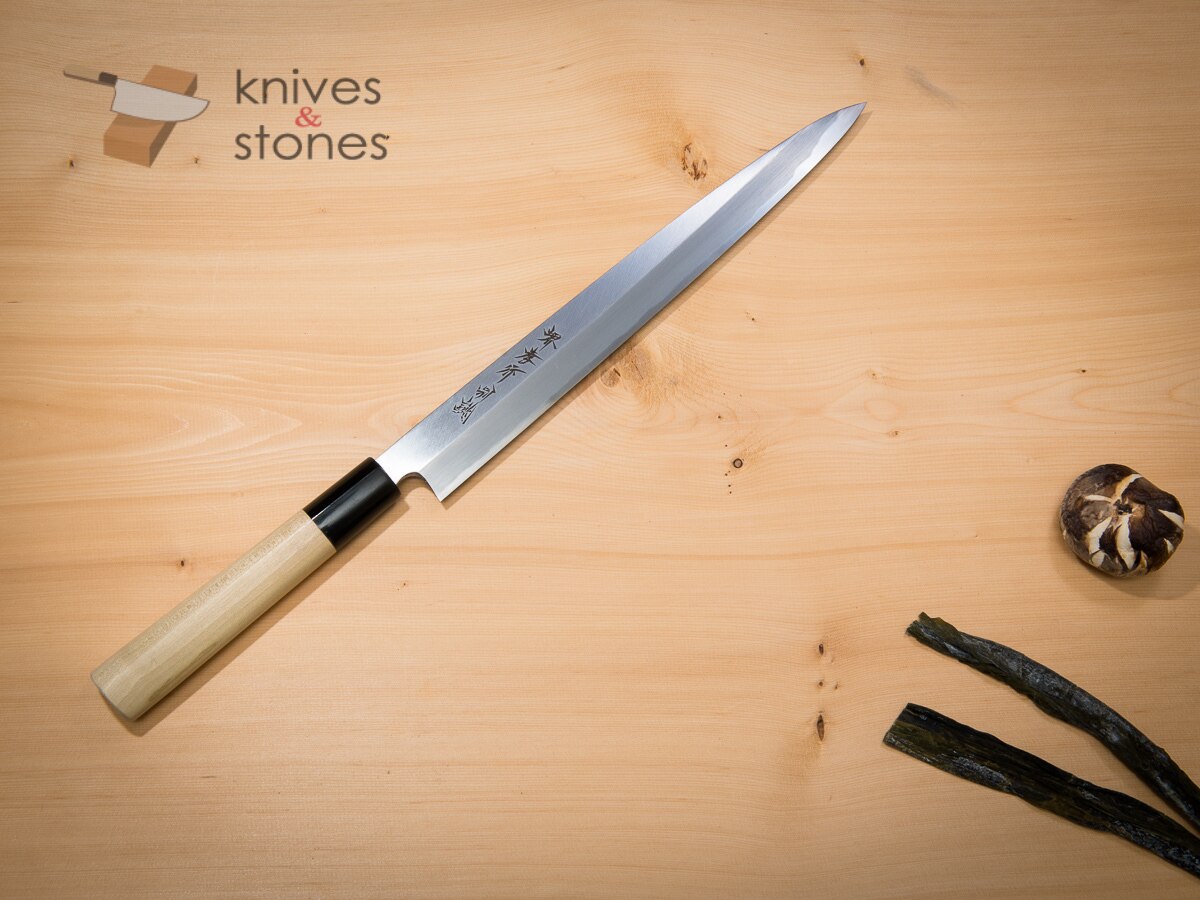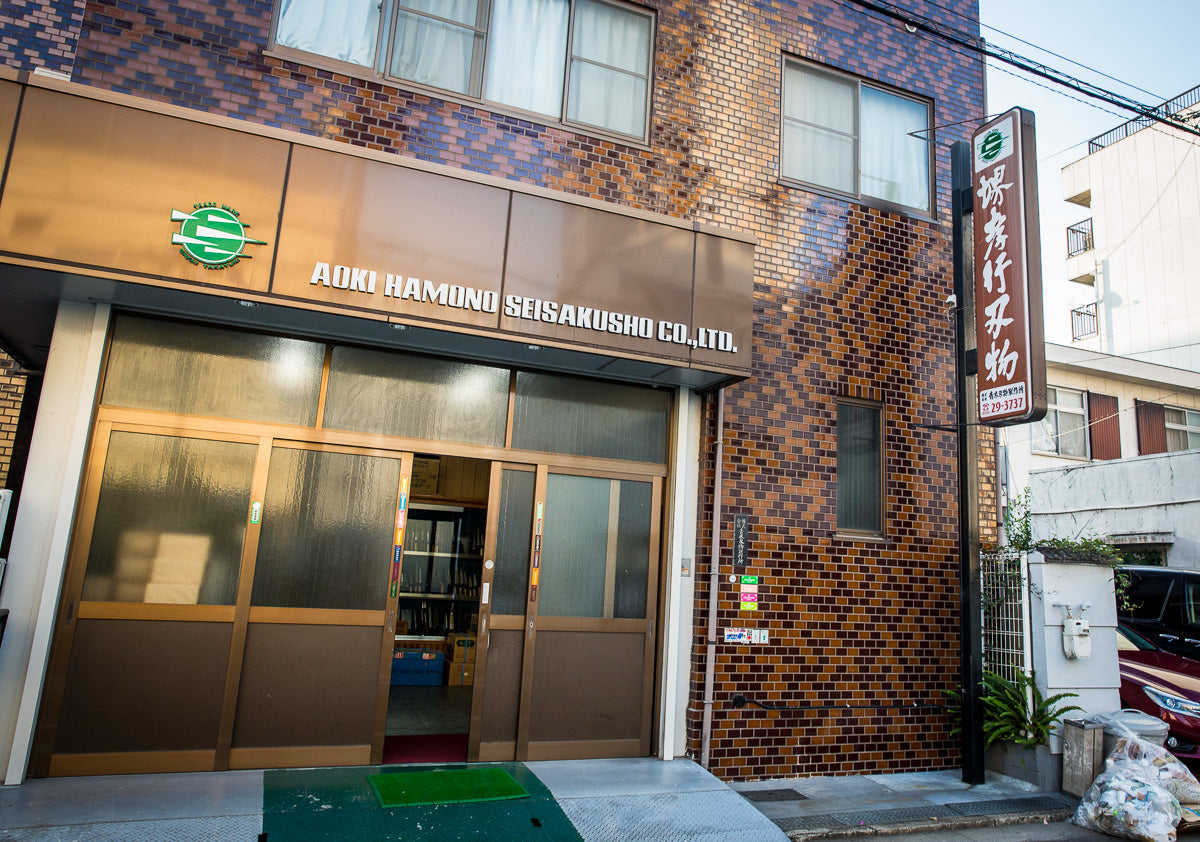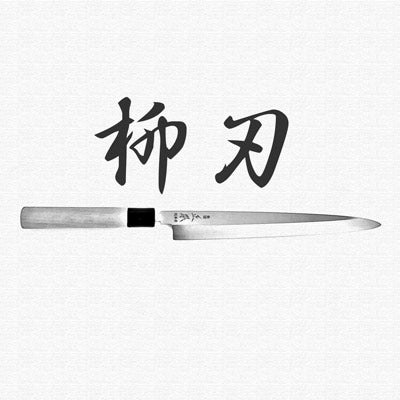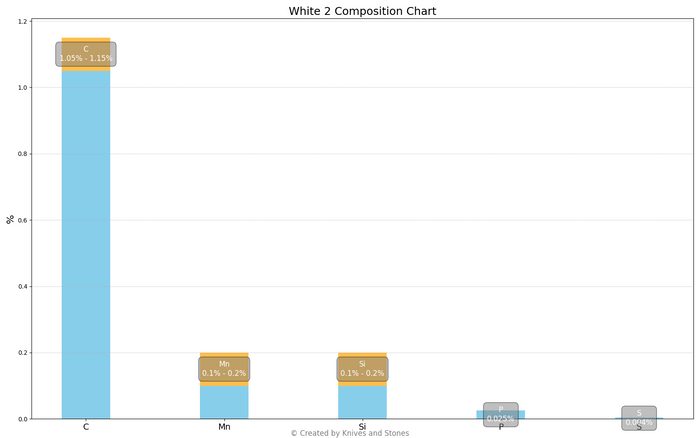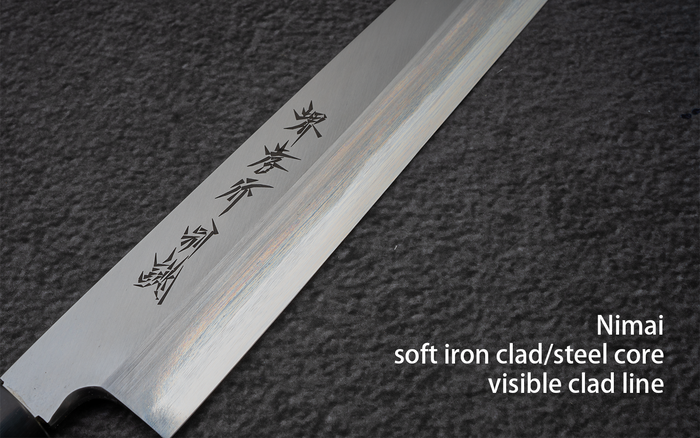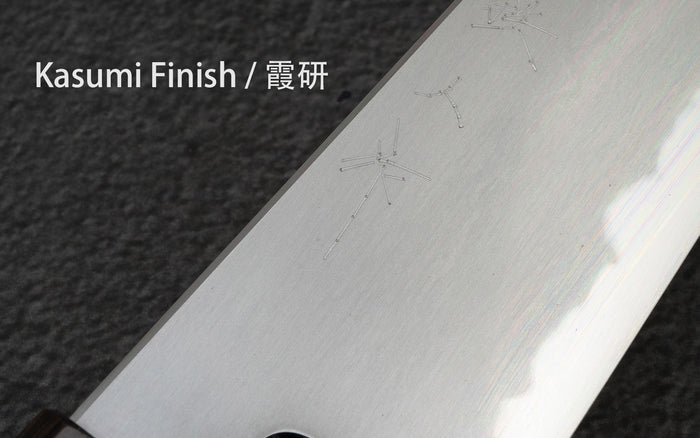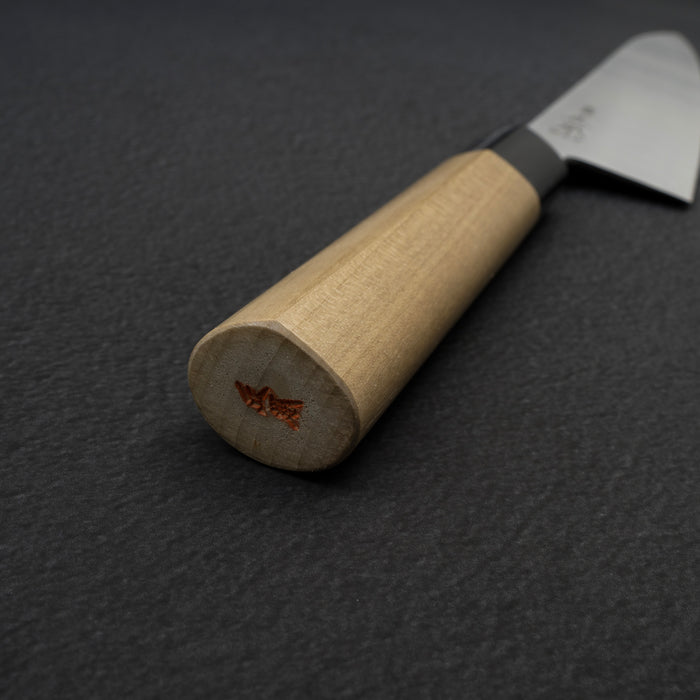Sakai Takayuki | SKU:
SATA_TOKU_YA240
Sakai Takayuki Tokujou Yanagiba 240mm (9.4") White 2 Carbon Steel
$369.95
Unit price
/
Unavailable
Sakai Takayuki Tokujou Yanagiba 240mm (9.4") White 2 Carbon Steel is backordered and will ship as soon as it is back in stock.
Couldn't load pickup availability
Detailed Specifications
| Line | Sakai Takayuki Tokujou White 2 |
| Profile | Yanagiba |
| Bevel Type | Single Bevel |
| Weight | 124 g 4.37 oz |
| Edge Length | 230 mm .9.06 inch |
| Heel Height | 30 mm .1.18 inch |
| Width @ Spine | 3.7 mm 0.15 inch |
| Width @ Mid | 2.7 mm 0.11 inch |
| Width @ 1cm from Tip | 1.1 mm 0.04 inch |
| Steel | White 2 / Shirogami #2 | Carbon |
| Blade Construction | Nimai- Soft Iron Clad |
| Hardness (HRC) | 60 - 64 |
| Surface Finish | Kasumi |
| Handle | D Shaped Ho Wood Black Horn |
| Region | Sakai |
| Best for |
|

| Pros | Cons |
|
|
|
Care Instruction
- Don't cut hard things! Japanese knives are brittle so bone hacking is a NO NO!
- Wash with neutral detergent after use, and wipe dry;
- Please don't wash knife with dishwasher, it will damage the wood handle;
- Be careful not to leave the knife close to a heat source for a long time;
- It is a lot more dangerous to cut with a blunt knife than a sharp knife!
- It is best to sharpen a Japanese knife regularly on a waterstone.
- Oil the (carbon) knife if storing for an extended period of time to prevent rust.

